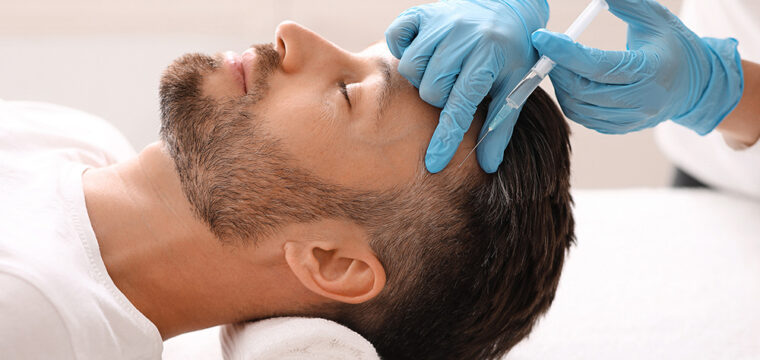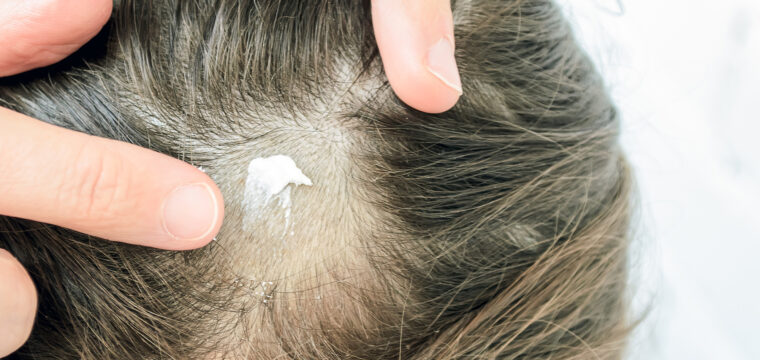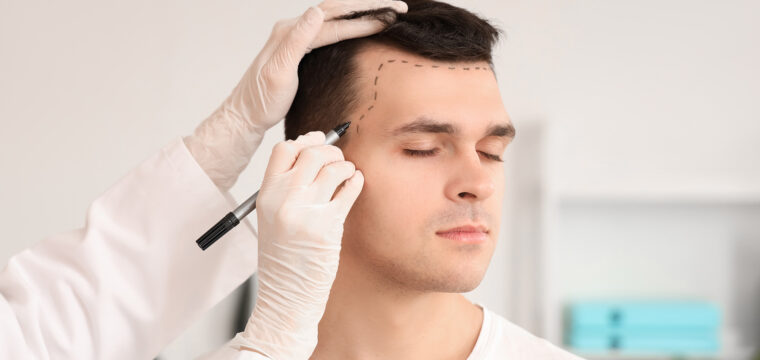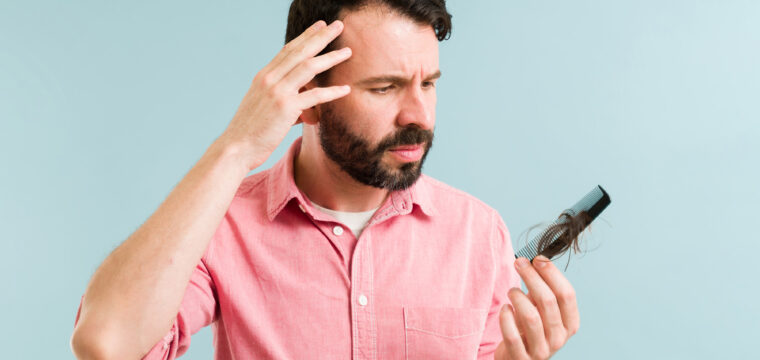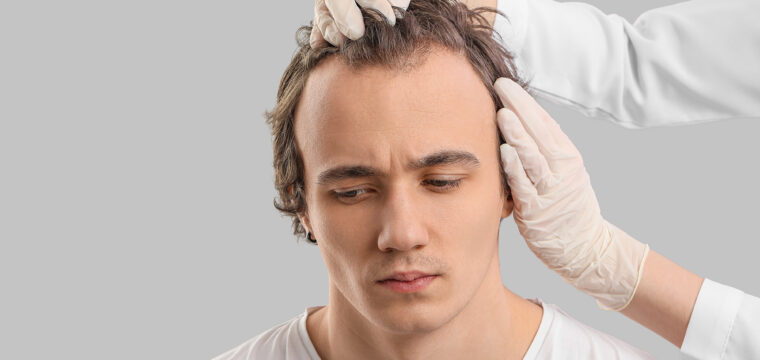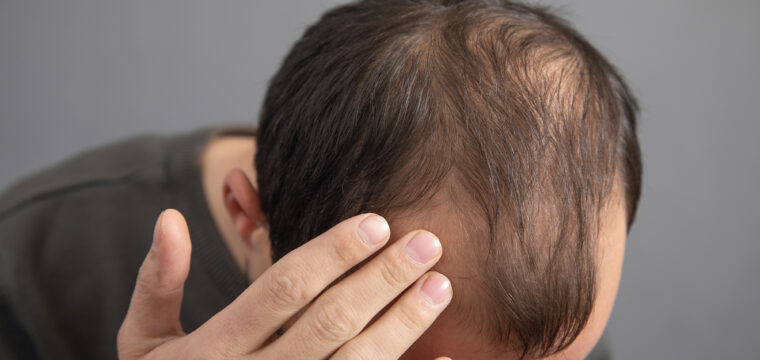Last updated on February 20, 2024
Hair loss is a common concern for many individuals, and while genetics and hormonal factors often play a significant role, vitamin deficiencies can also contribute to this issue. Understanding why deficiency causes hair loss is crucial for effectively addressing and preventing hair loss as well as stimulating hair growth.
Here, Hair Doctors in Sydney will look into how vitamin deficiency causes hair loss, exploring the hair growth cycle, essential vitamins for healthy hair, and what to do to promote healthy hair growth and treat hair loss.
The Hair Growth Cycle and How Deficiency Causes Hair Loss
This cycle consists of three main phases: anagen (growth), catagen (transitional), and telogen (resting). During anagen, hair follicles actively grow. Catagen signals the end of hair growth, while telogen is a resting phase for hair follicles before shedding.
On average, the anagen phase lasts anywhere from two to seven years, while the catagen and telogen phases typically last a few weeks to a few months each. Understanding this cycle is crucial for managing hair health and addressing hair loss concerns.
Vitamins play a crucial role in supporting each stage of the hair growth cycle, ensuring healthy hair growth and maintenance. Any vitamin deficiencies can disrupt this cycle, leading to hair thinning.
Common Vitamins for Healthy Hair Growth
Several vitamins are essential for maintaining healthy hair growth:
- Vitamin A: Promotes sebum production, which moisturises the scalp and keeps hair follicles healthy.
- B Vitamins (Biotin, folic acid, B6, B12, niacin): These support hair growth and hair follicle health by aiding in the metabolism of proteins necessary for hair structure.
- Vitamin C: Supports collagen production, which strengthens hair and prevents breakage.
- Vitamin D: Influences hair follicle cycling, potentially reducing hair loss.
- Vitamin E: Provides antioxidant protection and boosts the immune system, guarding against oxidative stress that can damage hair follicles.
- Vitamin K: Supports blood circulation to the scalp, ensuring that essential nutrients reach hair follicles.
- Iron: Iron deficiency anaemia can lead to hair loss by disrupting the hair growth cycle, resulting in weakened, brittle hair and increased shedding.
Each of these vitamins plays a unique role in promoting hair health, so it’s important to maintain adequate levels in the body, as deficiency causes hair loss.
Signs of Vitamin Deficiency-Related Hair Loss
Common signs of hair loss due to vitamin deficiencies include excessive shedding, changes in hair texture and appearance, and slow hair growth. These symptoms may indicate a lack of essential nutrients necessary for healthy hair follicles.
It’s important to see a medically-trained hair health professional to understand why this is happening and treat underlying causes, such as a vitamin deficiency, immune system issues, or iron deficiency anaemia.
Vitamin Deficiency Causes
Various factors can contribute to vitamin deficiencies and unhealthy hair follicles, including poor diet, medical conditions affecting nutrient absorption such as iron deficiency anaemia, medications depleting specific vitamins, and unhealthy lifestyle habits such as excessive alcohol consumption or smoking.
Diagnosing Vitamin Deficiencies
Seeking medical advice and testing for vitamin deficiencies are essential steps in addressing hair loss and promoting healthy hair follicles. Healthcare providers may recommend blood tests to assess nutrient levels accurately. A professional diagnosis can guide appropriate treatment and supplementation to rectify vitamin deficiencies.
Treating and Preventing Hair Loss Due to Vitamin Deficiency
Addressing hair loss caused by vitamin deficiencies involves dietary changes to incorporate vitamin-rich foods, maintaining a healthy diet and immune system, and taking supplementation as advised by healthcare professionals, as well as consideration of underlying health conditions. Consistency and patience are key in achieving and maintaining hair health, preventing hair shedding, and stimulating new hair growth.
Lifestyle Factors for Healthy Hair Growth
In addition to proper nutrition and dietary supplements, maintaining healthy hair and hair follicles requires lifestyle choices such as consuming a balanced diet with essential fatty acids, staying hydrated, managing stress effectively, and avoiding damaging hair practices like excessive heat styling and harsh treatments that can contribute to hair shedding or hair thinning.
Expert Solutions for Healthy Hair Growth from Hair Doctors Sydney
Hair Doctors in Sydney, Australia, offer top-rated hair clinic services with state-of-the-art facilities and evidence-based treatments for healthy hair growth. With advanced AI-driven scalp analysis and affordable payment plans starting from $35/week, we provide personalised solutions for hair growth and hair loss concerns. Contact us today to take the first step towards healthier hair with expert guidance from Hair Doctors.
FAQs
What vitamin deficiency causes hair loss?
Vitamin deficiencies that can cause hair loss include deficiencies in Vitamin A, B vitamins (particularly biotin, folic acid, B6, and B12), Vitamin C, Vitamin D, and Vitamin E. Hair follicles can also be affected by iron deficiency.
What is the best vitamin for hair loss?
Biotin supplements, also known as Vitamin B7, is often considered one of the best vitamins and dietary supplements for hair loss and vitamin deficiencies. It plays a crucial role in maintaining healthy hair growth as well as healthy skin and nails. Other important vitamins and minerals include folic acid (B9), vitamin C, and iron supplements.
What foods stop hair fall?
Foods rich in essential nutrients such as biotin, folic acid, iron, zinc, Vitamin C, and Vitamin E can help prevent hair fall, treat vitamin deficiencies, and promote healthy hair growth. Examples include eggs, spinach, nuts, seeds, fatty fish, citrus fruits, and avocados.
Why am I losing so much hair?
Hair loss can be caused by various factors, including genetics, hormonal changes, stress, nutritional deficiencies, vitamin deficiencies, medical conditions (such as thyroid disorders, iron deficiency, or autoimmune diseases), medications, and improper hair care practices.
How do I find the right doctors for hair loss?
To find the right doctors for hair loss, consider consulting dermatologists or medical doctors specialising in hair loss, hair health vitamin deficiency, and procedures for stimulating hair growth. Look for medically-trained hair doctors with experience in diagnosing and treating hair loss conditions, and consider seeking recommendations from trusted sources.







